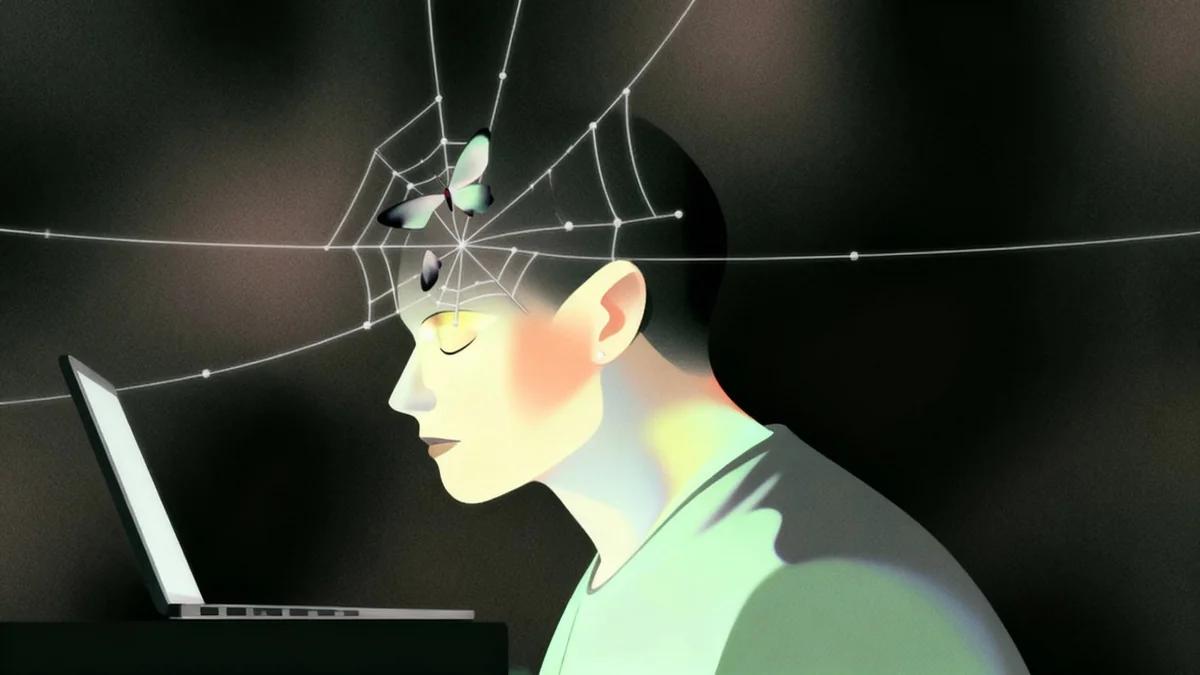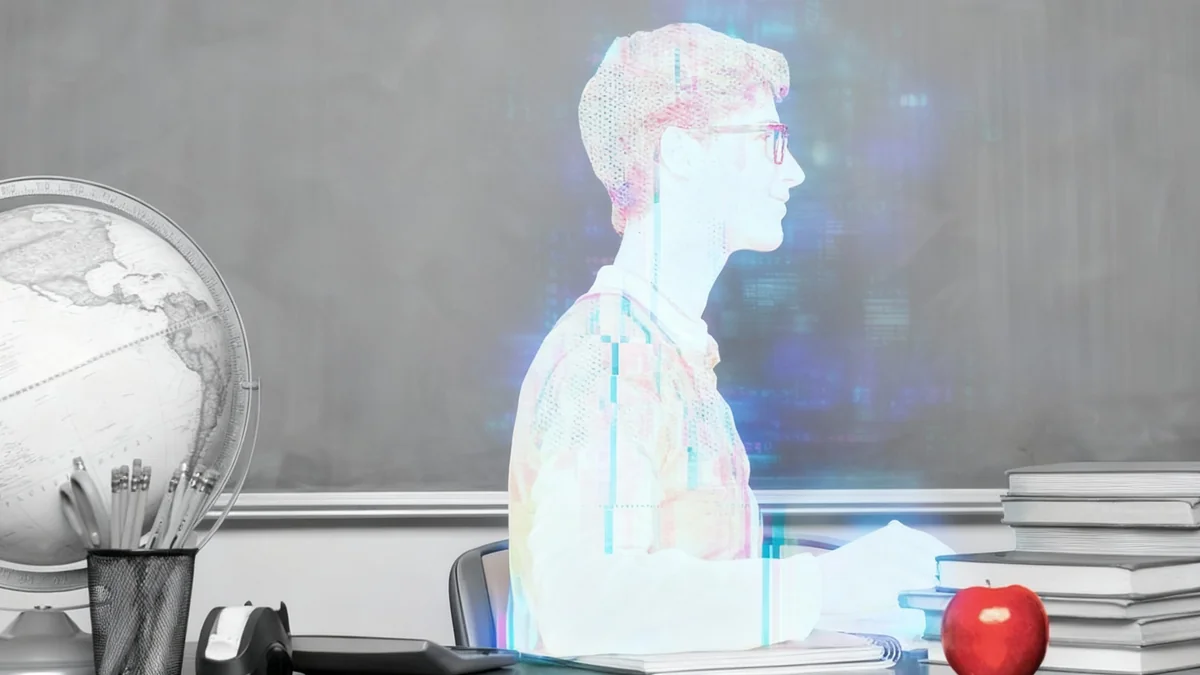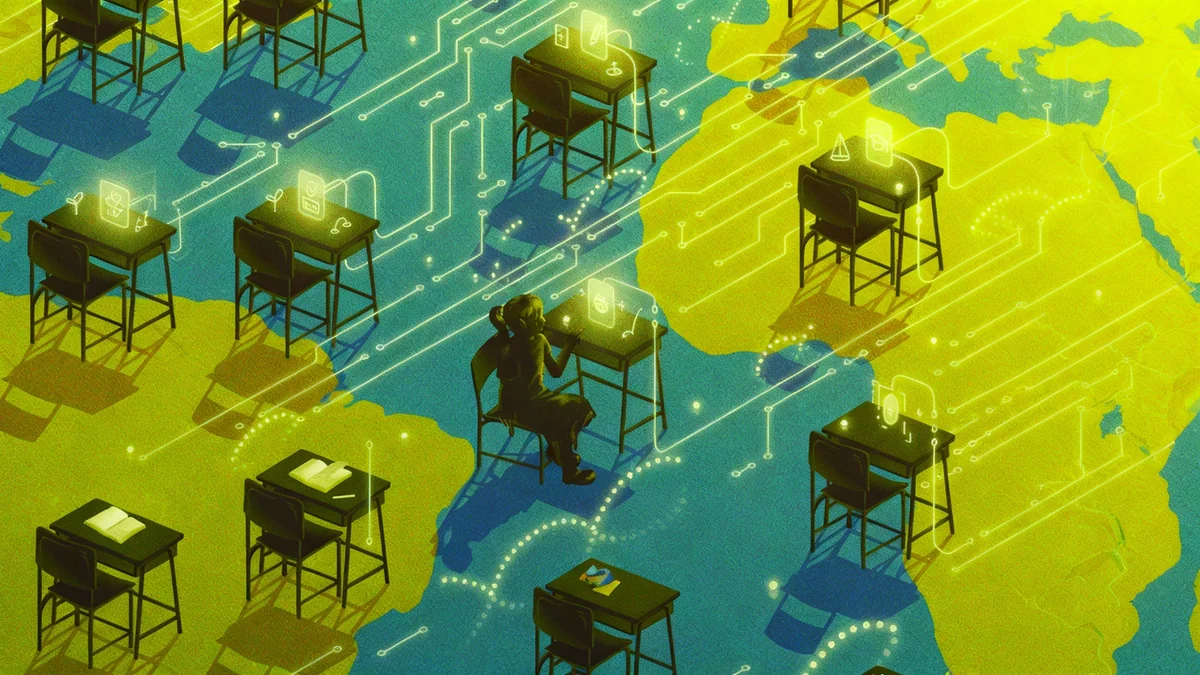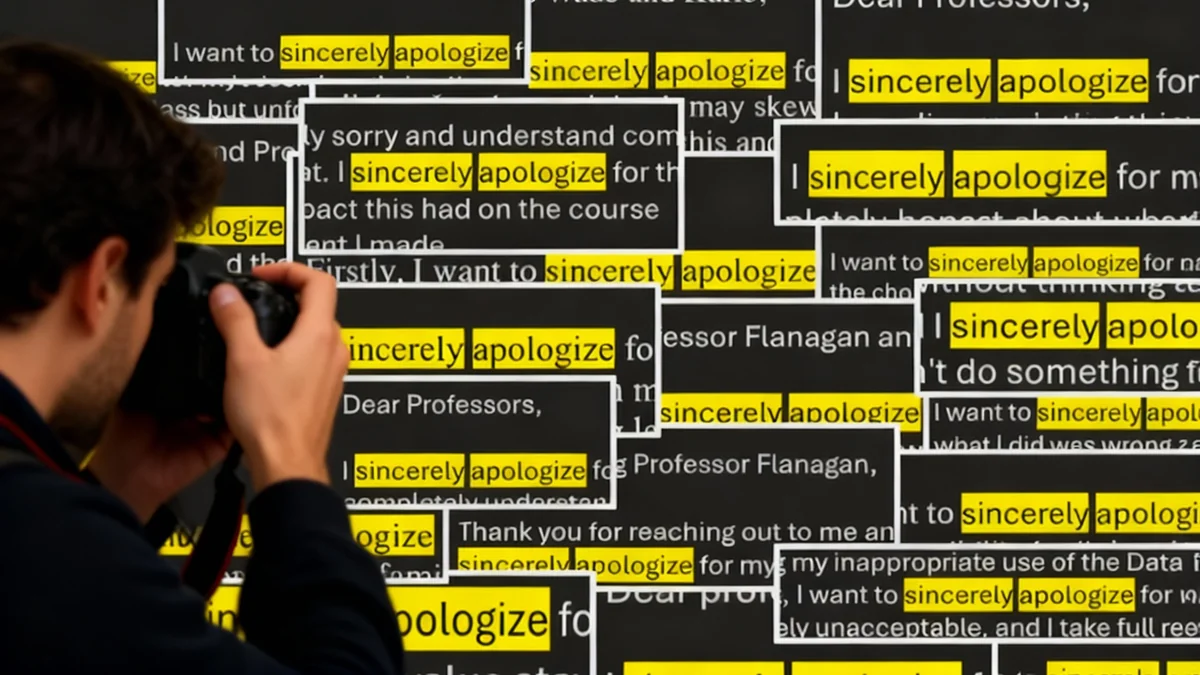The increasing reliance on artificial intelligence tools, particularly among students, poses a significant threat to fundamental human cognitive abilities. This trend extends beyond academic integrity, impacting linguistic mastery and the basic capacity for critical thought.
Key Takeaways
- Over half of university students in one course used AI for exams, violating policy.
- AI use impacts basic cognitive fluency and linguistic development.
- Concerns arise about students becoming 'subcognitive' due to over-reliance on AI.
- Historical parallels exist with past technologies like writing, but the current stakes differ.
- There is a risk students will lack the tools to understand and navigate the world effectively.
Students Turning to AI for Academic Work
A recent observation highlights a growing issue in academia. During a philosophy course, more than 50% of students reportedly used artificial intelligence for their final take-home exams. This occurred despite clear policies against such practices. The course, ironically titled 'Contemporary Moral Problems: The Value of Human Life,' saw students submitting work that referenced incorrect philosophical concepts, confusing recent ideas with medieval theology due to AI's misinterpretation.
This incident is not isolated. Reports of widespread AI cheating have emerged from educational institutions across the country. The ease of access to AI tools allows students to bypass genuine learning and critical engagement with course material.
"Our students are about to turn subcognitive," a colleague articulated, capturing the core concern about this trend.
AI Use in Academia
In one specific university course, over 50% of students were found to have used AI tools for their final exams, violating explicit academic policies.
Impact on Cognitive Development and Linguistic Mastery
The danger extends beyond academic dishonesty. Educators express deep concern that excessive reliance on AI deprives students of crucial opportunities for cognitive development. This includes the development of linguistic mastery, which is fundamental to clear thinking and understanding the world.
When AI generates text, students lose the chance to formulate their own thoughts, structure arguments, and refine their vocabulary. This process is vital for building basic cognitive fluency. Without it, students may struggle to grasp complex ideas or express themselves effectively.
The Risk of Becoming 'Subcognitive'
The term 'subcognitive' describes a state where individuals lack the most elementary powers of thought. If students consistently delegate their thinking and writing to AI, they risk losing the ability to perform these functions independently. This could lead to a generation less equipped to analyze, synthesize, and communicate information on their own.
Historical Context of Technological Shifts
New technologies have always raised concerns about human capabilities. Plato, for instance, warned against the invention of writing, fearing it would diminish human memory. While writing did change how humans interact with information, it also enabled the preservation and spread of knowledge across millennia. The key question is always whether the benefits outweigh the costs.
Navigating a World Shaped by AI
The implications of this cognitive shift are far-reaching. If students do not develop strong linguistic and critical thinking skills, they may lack the means to understand the complex world around them. This includes navigating social, political, and economic landscapes that require nuanced comprehension and independent judgment.
The current challenge is to find a balance. While AI offers powerful tools, it must not replace the fundamental human processes of learning and intellectual development. Educational institutions and policymakers face the task of integrating AI responsibly.
- Promote critical thinking: Encourage students to question AI outputs.
- Emphasize original thought: Design assignments that require unique human insight.
- Develop AI literacy: Teach students how to use AI ethically and effectively as a tool, not a replacement for thought.
- Strengthen academic integrity policies: Implement robust measures to detect and deter AI misuse.
Long-Term Societal Consequences
The long-term effects of a 'subcognitive' population could be significant. A society where a large segment of its members struggles with basic cognitive fluency might find it harder to address complex challenges, foster innovation, or maintain informed public discourse. The ability to articulate ideas and engage in meaningful debate relies heavily on strong linguistic and analytical skills.
As AI technology continues to advance, the conversation must shift from simply detecting misuse to understanding and mitigating its impact on human intellectual development. The goal should be to ensure that future generations retain their capacity for independent thought and effective communication.





